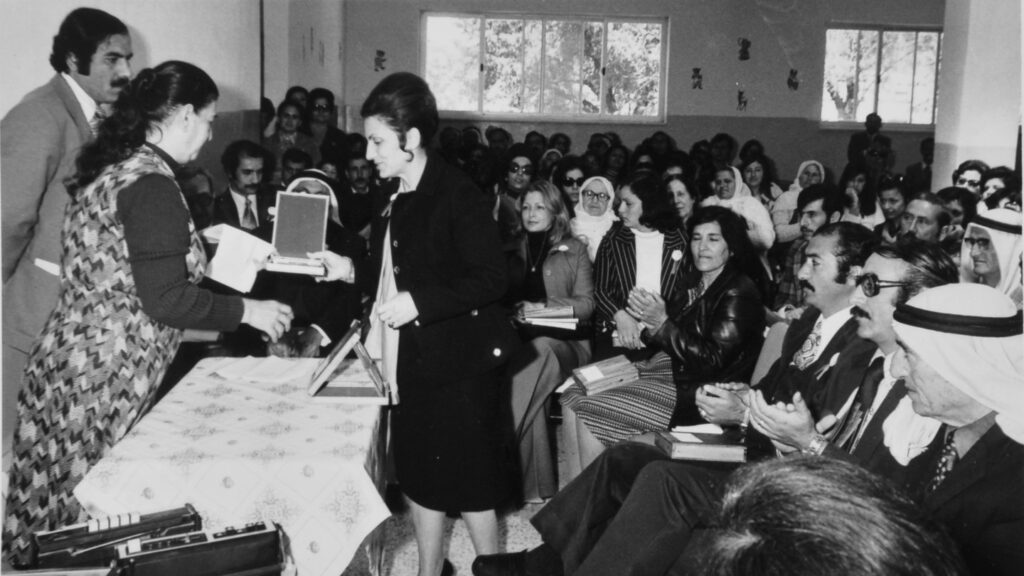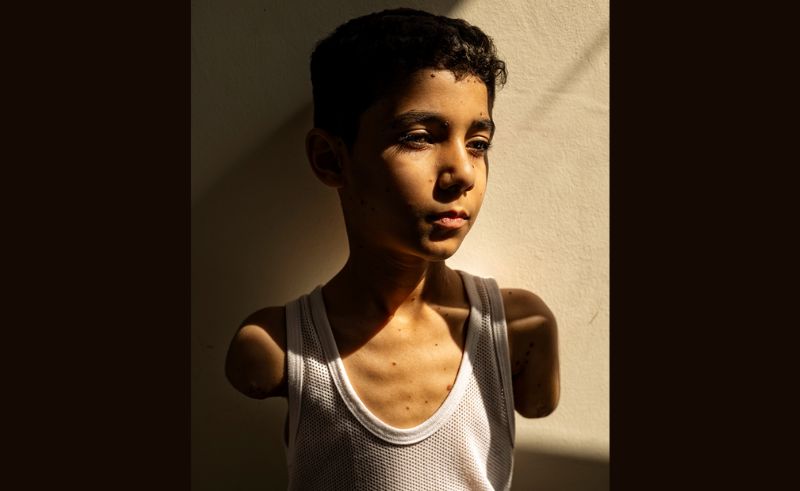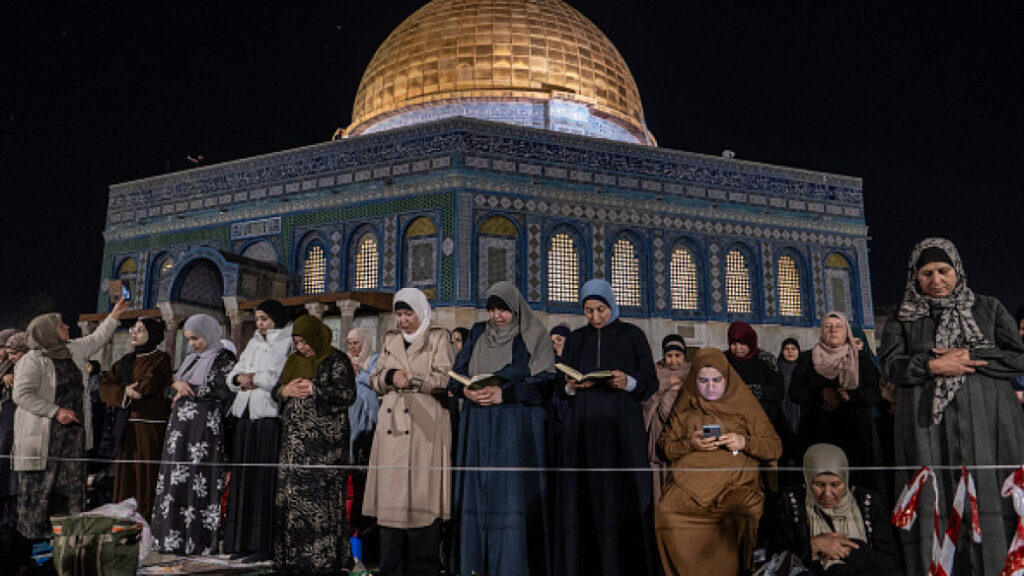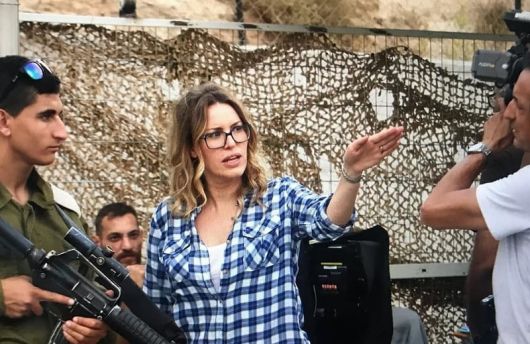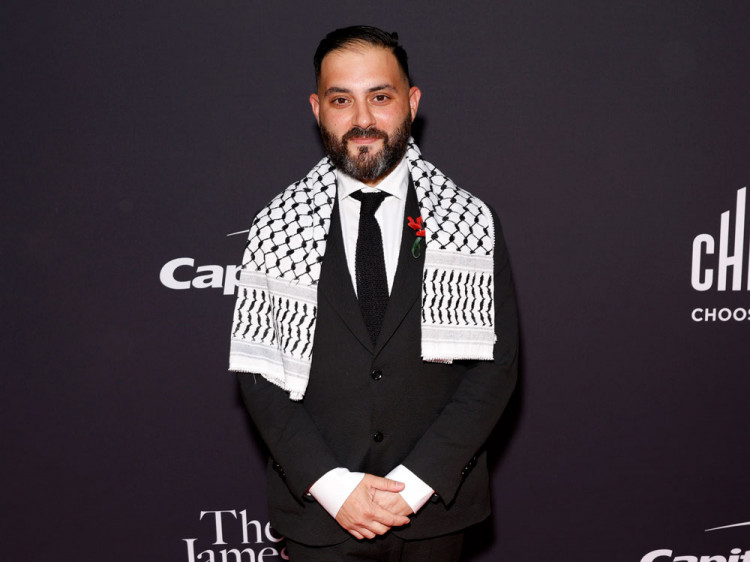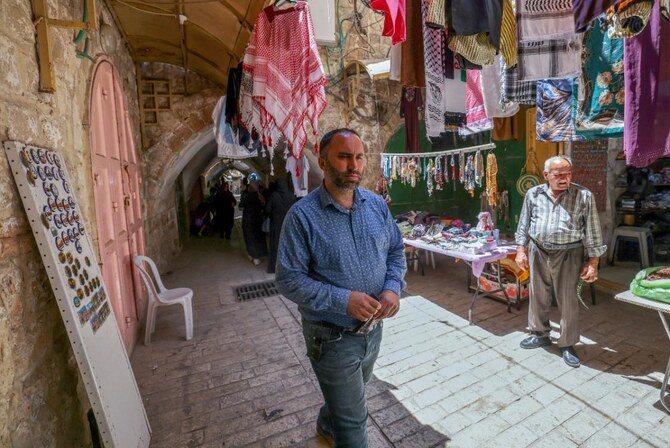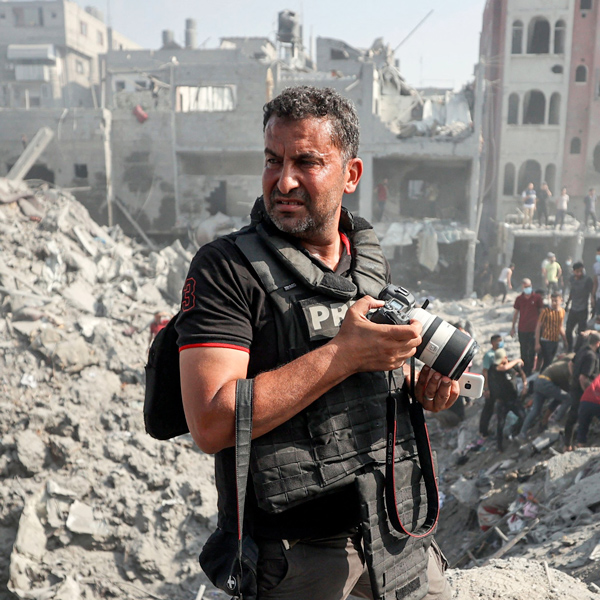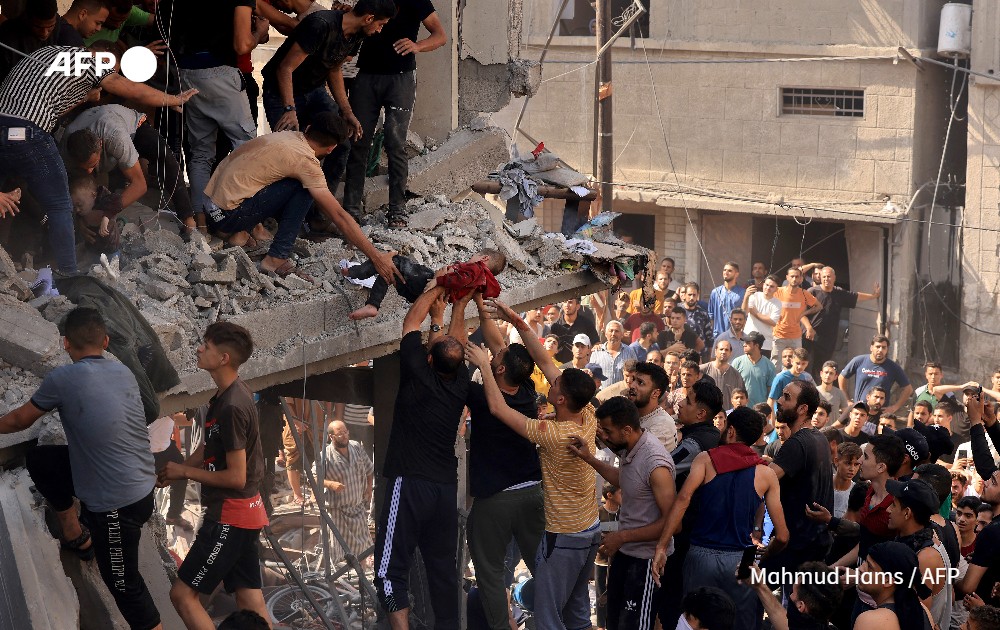My dearest friend Fatima Hassouna has been martyred.
Writing this feels unreal – as if I am waiting for her familiar voice to echo in my ear.
We had a playful way of saying “hello” to each other. And Fatima had the most magical of laughs.
She could disarm you instantly.
But the silence remains and the void caused by her absence is too vast to comprehend.
Fatima was a photographer and a filmmaker. More importantly – for me – she was an extremely warm human being.
She was strong and – in a good way – stubborn.
I knew Fatima from childhood. But life – as it often does – had pulled us apart for many years.
It wasn’t until Israel launched its genocidal war against Gaza that we became close again. This happened unexpectedly during a film project.
Fatima was behind the camera, and I was there with a pen in order to write articles.
Our reunion – despite the chaotic circumstances – rekindled something profound. Our shared grief and resilience made our friendship deeper.
Fatima was deeply committed to her craft. She never simply documented a moment. She became part of it.
She had a rare ability to earn trust quickly.
The subjects of her photography were not just faces or stories. They were people she befriended.
Fatima’s camera wasn’t a barrier. It was a bridge.
She always said that she wanted not just to carry a message but to show kindness to the people she filmed or photographed.
At Fatima’s core was a sense of purpose. She came from a place of love.
We lived just a street apart in Gaza City all our lives.
After the genocide began, we would walk everywhere together. There were no taxis around and prices were rising ever higher.
Each morning, Fatima would call.
“Wait for me,” she would say. “Let’s walk together.”
And so we did.
Those walks were more than just a means of getting from A to B. They were our little escapes.
We shared everything: sorrows, secrets, silly thoughts.
I never had to pretend to be anything I wasn’t when I was with Fatima.
There were no walls between us. Just warmth and honesty.
Tender rebellion
When Fatima got engaged recently, her happiness was contagious. Despite the hunger, and the overwhelming darkness that Israel’s genocidal war had brought, she lit up like a child planning a birthday party.
We would go to the market almost daily, hunting for clothes that she could wear as she went out with her fiancé.
I remember how excited she was, how we laughed even as we carried heavy bags for long distances.
Her joy in those days amounted to a tender rebellion, a statement that love and life still mattered in the face of devastation.
We developed a ritual with our friends.
Every week, we would gather in one of our homes. We cooked whatever food we had, brewed bitter tea – we had no sugar – and sang.
We sang until the pain dulled and the laughter returned.
Those nights were our anesthesia. They allowed us to breathe in suffocating times.
Fatima was always our anchor.
She told stories, and her laughter filled the room. We could see sorrow in her eyes, but it was mixed with hope.
An unbreakable hope.
Fatima had an enchanting voice when she sang. Like something from heaven.
When the sound of Israel’s drones became too much for me to bear, I would listen to a recording of Fatima singing. Her voice brought me peace.
It served as a reminder that something pure still existed in this world.
Friendships formed – or in this case, revived – during genocide are unlike any other. They are shaped by shared experiences of hunger, sleepless nights and the constant nearness of death.
When Fatima was killed, it was like a limb had been severed from my body. I felt incomplete.
I still do.
Every night, I continue to wait for her call. I wait for the way she would tell me – without preamble – how she was feeling that day.
She would always wish to God that she would never be deprived of me.
But now I am deprived of Fatima. And it hurts more than words can express.
Fatima and I worked as a team. During the genocide, we would go down to al-Yarmouk – the football stadium that has became a huge shelter for displaced people – she with her camera, I with my notebook.
We inspired each other.
Fatima told me that she loved how I put people’s experiences into words.
“I love your ideas,” she said. “They make me want to shoot better.”
I wish that she was still around to tell her how much I loved her eye for a good photograph or image.
How she saw not just the suffering in a person but the soul behind it.
How she brought dignity to every frame.
Last winter, we were working in al-Yarmouk stadium, where the conditions were especially dire. Seeing the suffering around her, Fatima said that we must help.
I asked her to speak with the director of the film project she was working on about distributing blankets. She did and soon we were part of a mission to not only document hardship but to relieve it.
That day, we weren’t just storytellers. We were part of the story.
And Fatima was glowing. She had done something she had always dreamed of: She had made a difference.
Fatima was only 25.
Just 25.
Yet her heart carried the weight of centuries, and her spirit was brighter than a thousand suns. She was childlike and wise, gentle and fierce, brave and vulnerable.
She was exceptional. I carry her memory with me every moment.
I see her in the morning light, in the silence of a street where we once walked, in the stories we still need to tell.
Losing her is unbearable. But remembering her – keeping her voice, her laughter, her vision alive – is my way of holding on.
She was my sister, my confidante, my light.
May the world never forget the name Fatima Hassouna.
May the stories she told outlive the genocide that took her.
And may we all learn from her to live with courage, to work with purpose, and to love – always – with everything we have.
Asmaa Abdu is an academic writer and a project coordinator at the UCAS Technology Incubator in Gaza.
source/content: electronicintifada.net (headline edited)
_____________

Fatima Hassouna (Photo courtesy of Asmaa Abdu)
_________________
PALESTINIAN
